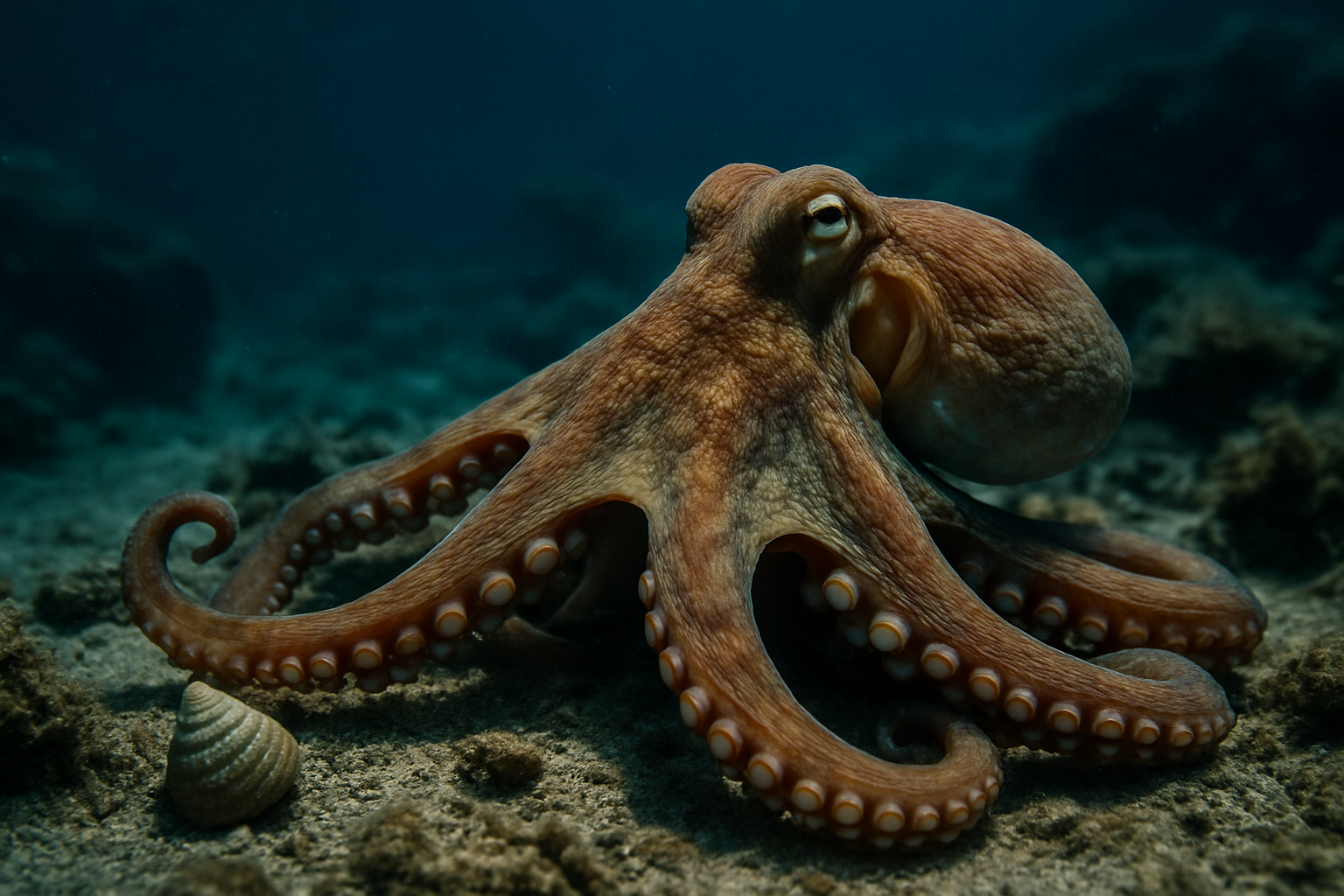The Intriguing World of Octopuses: Intelligent Invertebrates of the Deep
The octopus, a creature of the deep, has long fascinated scientists and animal lovers alike. With their eight arms, three hearts, and impressive cognitive abilities, these marine animals are a testament to the wonders of evolution. This article delves into the captivating world of octopuses, exploring their unique characteristics, intelligence, and their role in the marine ecosystem.

The Octopus: A Brief History and Key Developments
Octopuses belong to the class Cephalopoda, which also includes squids and cuttlefish. Fossil records suggest that these creatures have been around for at least 300 million years, predating even the dinosaurs. Over time, octopuses have evolved to become one of the most intelligent invertebrates, with a complex nervous system and highly developed senses.
Recent research has shed light on the remarkable abilities of octopuses. For instance, they have been found to use tools, solve puzzles, and even escape from closed containers, demonstrating a level of intelligence that was previously thought to be exclusive to vertebrates.
Octopuses in the News: Current Updates
In recent news, octopuses have been making waves for their extraordinary abilities. A study published in 2021 revealed that octopuses can alter the RNA in their nervous system, a process known as RNA editing. This allows them to adapt to different temperatures and pressures in the ocean, a finding that has significant implications for our understanding of genetic adaptation.
The Market for Octopus-Inspired Products
The fascination with octopuses has also led to the development of various octopus-inspired products in the market. From octopus-themed home décor to educational toys and books, these products cater to the growing interest in these marine creatures. The market for such products is estimated to be worth several million dollars, reflecting the widespread appeal of octopuses.
The Science Behind Octopus Intelligence
Octopuses possess a large brain and a sophisticated nervous system, which contribute to their high intelligence. They have the ability to learn from experience, solve complex problems, and exhibit behaviors such as playfulness and curiosity. Some species of octopuses have even been observed using coconut shells as shelters, demonstrating tool use, a behavior typically associated with higher mammals.
The Role of Octopuses in the Marine Ecosystem
Octopuses play a crucial role in the marine ecosystem. As both predators and prey, they help maintain the balance of marine life. They feed on a variety of organisms, including crabs, lobsters, and shellfish, and are preyed upon by larger animals like sharks and dolphins. Their ability to change color and texture also makes them masters of camouflage, aiding in both hunting and evasion from predators.
In conclusion, the world of octopuses is a testament to the marvels of nature. Their unique characteristics, intelligence, and role in the marine ecosystem make them a fascinating subject of study. As we continue to explore the depths of the ocean, it is clear that there is still much to learn about these intriguing creatures of the deep.






